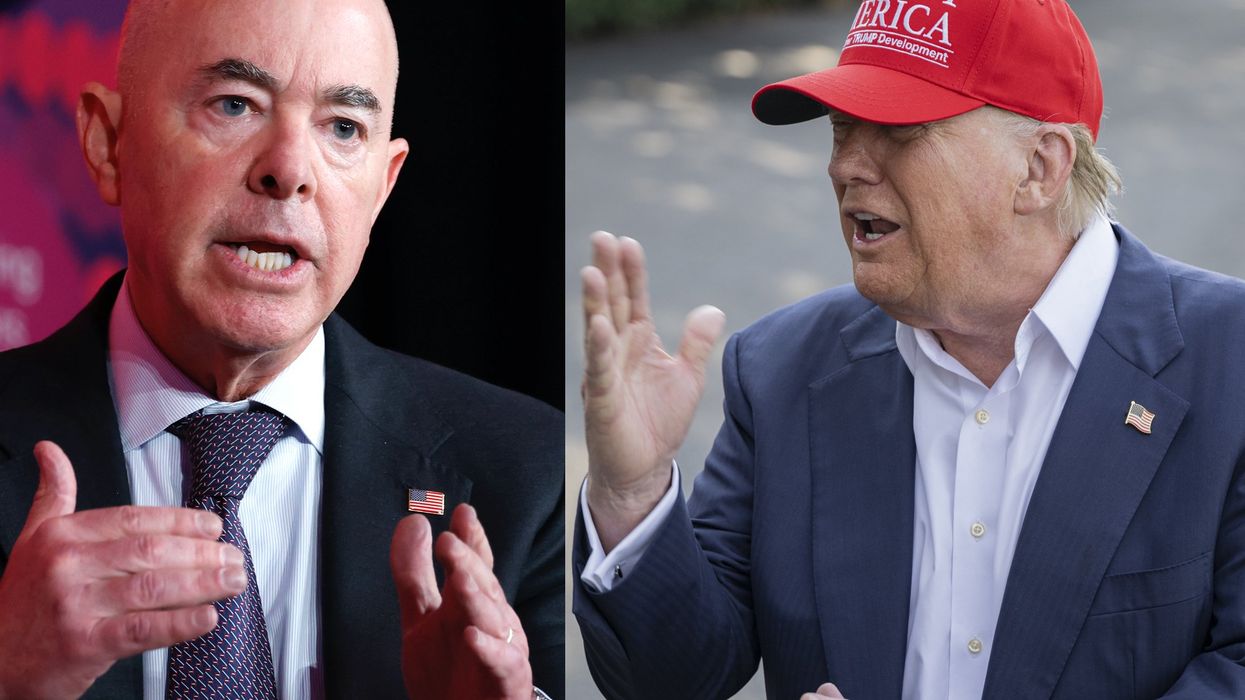A top White House official scoffed at concerns over deficit spending in a Washington Post op-ed, dismissing issues raised from an earlier column.
 President Barack Obama and John Podesta, counselor to the president, walk to the Oval Office after returning from a meeting at the Pentagon on October 6, 2014 in Washington, DC. Obama met with the military leaders for an update on the battle against ISIS. (Getty Images)
President Barack Obama and John Podesta, counselor to the president, walk to the Oval Office after returning from a meeting at the Pentagon on October 6, 2014 in Washington, DC. Obama met with the military leaders for an update on the battle against ISIS. (Getty Images)
“We can continue allowing our policy debates to be waylaid by single-minded, blinkered discussion of the long-term deficit,” wrote John Podesta, counselor to President Barack Obama. “Or we can make the right choice and focus on solving the challenges we face today, on building an economy that works for the middle class, on investing in young people and innovative technologies, on accelerating growth — and, in the end, reduce our long-term deficits and debt and avoid the crisis of 2039.”
The oped was in response to Post editorial page editor Fred Hiatt who criticized the Obama administration for claiming victory over deficit spending. Hiatt warned that while the deficit has decreased for now, it is set to increase after 2017 and the debt could reach potentially unsustainable levels by 2039.
The national debt stands at $17.8 trillion. The federal budget deficit stands at $486 billion.
Podesta rattled off administration goals such as a minimum wage hike, more infrastructure spending, and immigration reform as solutions to long-term fiscal solvency. Podesta also claimed that Obamacare is to be credited for controlling debt.
“The problem with Hiatt’s fixation on what’s going to happen to the budget in 2039 isn’t that high debt-to-GDP ratios don’t have consequences — it’s that deficit angst makes it all too easy for policymakers to ignore the fact that we still need to do more to repair the damage from the Great Recession, to grow wages and help middle-class families feel secure, and to invest in the future,” Podesta wrote.
He further reminded readers, “I understand the value of fiscal discipline. I helped to produce three budget surpluses when I was chief of staff to President Bill Clinton,” Podesta wrote.
Hiatt’s column Monday did not dispute priorities of the administration, rather argued that it would be more difficult to fund those progressive goals if action aren’t taken now to promote fiscal discipline.
“When it comes to entitlement reform, as far as this administration is concerned: mission accomplished,” Hiatt wrote. “Which is fair enough, if your horizon is Jan. 20, 2017. Anyone looking beyond that date should be alarmed at the satisfaction Obama proclaims despite the prospect of ever-rising government debt.”
He goes on to cite the Congressional Budget Office, which said federal debt would reach 74 percent of the gross domestic product, or GDP, “a higher percentage than at any point in U.S. history except a brief period around World War II.”
Moreover, the CBO says, “and almost twice the percentage at the end of 2008.”
“With no change in policy, that percentage will hold steady or decline a bit for a couple of years and then start rising again, to a dangerous 78 percent by 2024 and an insupportable 106 percent by 2039,” Hiatt wrote.
What’s more, entitlements like Social Security, Medicare and Obamacare will consumer 14 percent of the GDP by 2039, double the average of the last 40 years.
“Put those together and the government will be spending on entitlement programs and interest alone just about what it spends today on the entire budget,” Hiatt wrote. “Everything else — schools, pre-K, Pell grants, national parks, mass transit, housing subsidies — will get squeezed, or taxes will soar, or both.”

 President Barack Obama and John Podesta, counselor to the president, walk to the Oval Office after returning from a meeting at the Pentagon on October 6, 2014 in Washington, DC. Obama met with the military leaders for an update on the battle against ISIS. (Getty Images)
President Barack Obama and John Podesta, counselor to the president, walk to the Oval Office after returning from a meeting at the Pentagon on October 6, 2014 in Washington, DC. Obama met with the military leaders for an update on the battle against ISIS. (Getty Images)





